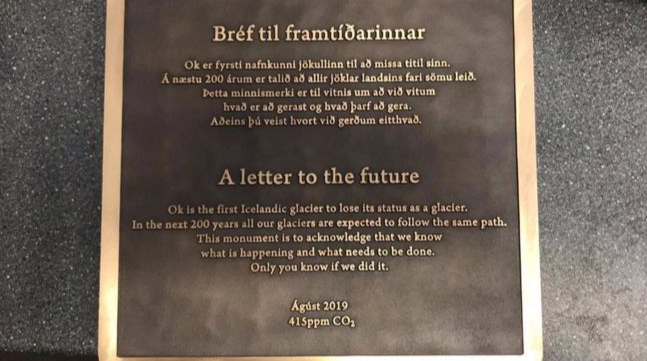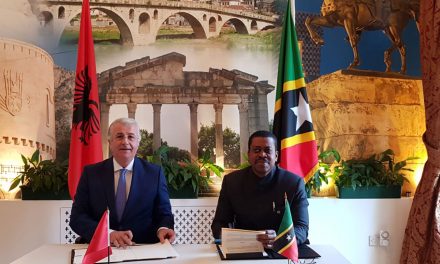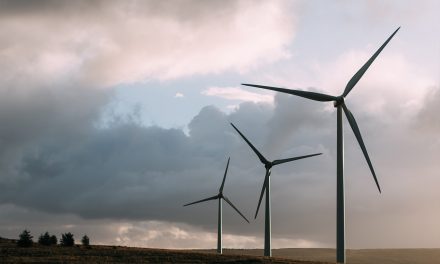Iceland has unveiled a memorial plaque to commemorate the loss of the Okjokull glacier. A ceremony on the site of the former glacier has warned of the dangers of climate change.
The ceremony was attended by the Icelandic Prime Minister, Katrin Jakobsdottir, as well as guests from the United Nations and several international universities.
The ceremony took place on Sunday and included political speeches, poetry, and silence to remember the glacier, which is Iceland’s first to completely melt away as a result of global warming.
The words on the plaque read, “This monument is to acknowledge that we know what is happening and what needs to be done. Only you know if we did it.”
The plaque is also labelled 415 ppm CO2, in reference to the record level of carbon dioxide recorded in the atmosphere in May.
Not Something to be Proud of
Mrs. Jakobsdottir said that the climate crisis would be at the top of the agenda at a meeting between Nordic leaders and Angela Merkel, the German Chancellor on Tuesday.
“We see the consequences of the climate crisis. We have no time to lose,” she said.
The project was the brainchild of local scientists and their fellow researchers from Rice University in the US, who had been monitoring the glaciers slow demise.
“This will be the first monument to a glacier lost to climate change anywhere in the world,” Cymene Howe, associate professor of anthropology at Rice University, said in July.
“By memorising a fallen glacier, we want to emphasise what is lost – or dying – the world over. This is something that humans have accomplished, although it is not something to be proud of,” she added.
Julien Weiss, an aerodynamics professor at the University of Berlin, said that losing a glacier is something tangible that people can relate to.
“Seeing a glacier disappear is something you can feel, you can understand it and its pretty visual. You don’t feel climate change daily, it’s something that happens very slowly on a human scale but very quickly on a geological scale,” he told AFP.
All Gone by 2200
Iceland is losing 11 billion tonnes of ice every year and the 400 glaciers still remaining face a similar fate to Okjokull and are expected all to have melted away by 2200 at the latest.
In 1890, the once giant Okjokull glacier measured 16 square kilometres, but by 2012 was just 0.7 square kilometres and by 2014 was stripped of its glacier status and is now called just “Ok”.
The International Union for the Conservation of Nature estimates that almost half of the world’s melting glaciers will be lost by 2100 unless carbon dioxide emissions are checked.
- Why is California So at Risk from Wildfires? - 13th November 2019
- Carbon Offsetting is Growing but Does it Make a Difference? - 11th November 2019
- Three Confirmed Dead as Australia Prepares for “Catastrophic” Bushfires - 11th November 2019






